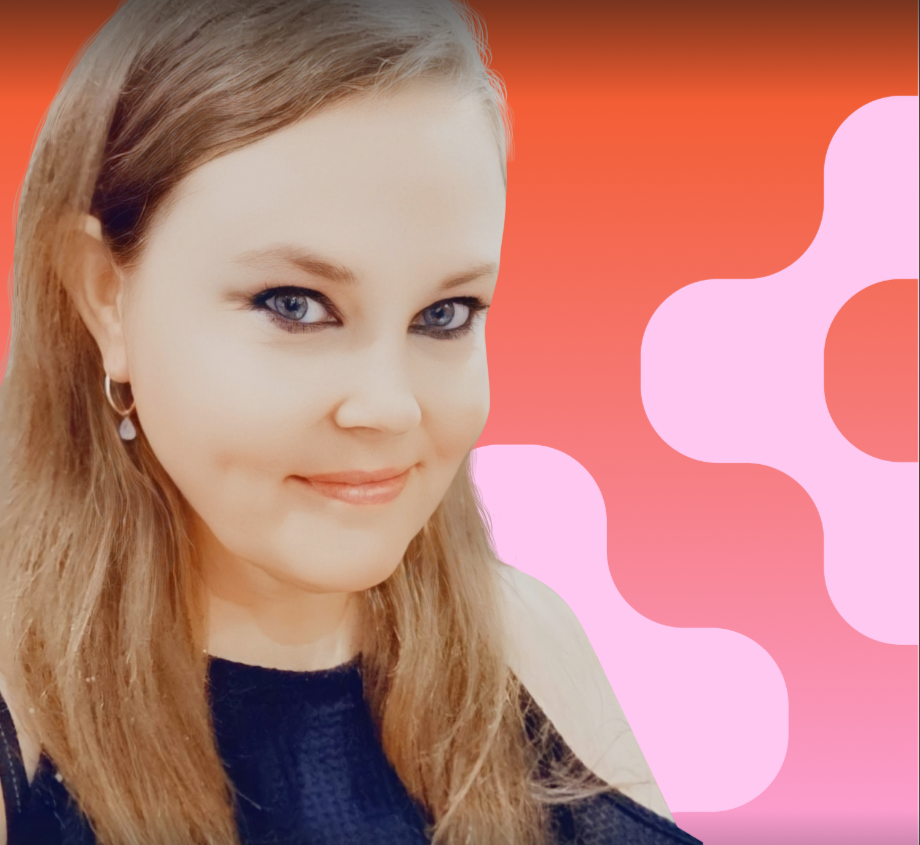Muse are breaking new ground with their latest offering. NFTs have gradually evolved from a fringe topic in an emerging market to one of the cornerstones of a multitrillion-dollar industry, says Emelie Olsson, Chief Operations Officer of Corite.
Nowhere is the uptake of NFTs more apparent than in the music industry. Non-fungible tokens are increasingly being adopted by record labels, mainstream acts, and indie artists alike.
One of the latest examples is the limited edition NFT albums. The first will be released soon by Muse, an English rock band that almost everyone has heard of. Even though it’s clear that the band isn’t the last to use NFTs, it’s not clear why this is such a big deal. Let’s take a closer look at the unique advantages NFTs can provide for both the artist and the fan.
Muse is rewarding its tech-savvy fans
Muse’s Will of the People NFT campaign is fairly easy to understand. The collection of 1000 NFTs will be listed for sale on the Serenade NFT platform for £20, or about $24. Purchasers will receive the NFT token and a high-resolution downloadable version of the album containing digital signatures from the band members. They will also have their names permanently listed on the linked roster of purchasers.
Issuing a limited number of ‘NFT editions’ of an album is a logical first step for record labels. These albums will still be made available through all traditional outlets, meaning that the NFT experience can be offered as a bonus opportunity to tech-savvy fans eager for a more unique and collectible experience.
Muse will be the first band to put out a chart-eligible NFT album, but they’re just passing the baton. They won’t be the last. A similar campaign has already been announced by Virgin Music, who will release 300 NFT copies of The Amazons’ third LP How Will I Know If Heaven Will Find Me? on September 2nd.
Other bands (for example, Kings of Leon in 2021) have released NFT albums. The two upcoming albums are notable in that they have been designed to be ‘chart compliant.’ This means that the sales of the NFTs will be included in the band’s official sales totals. This development suggests that similar campaigns could become increasingly common and larger in scope in the months and years ahead.
Things to think about before issuing an NFT
Producing and marketing a single or album already requires a lot of time and financial resources. Offering a compelling “NFT Edition” is not as simple as clicking a few buttons. It requires developers and graphic designers, as well as an artist and a fanbase with some basic knowledge of blockchain.
Here are some things I think artists and people who want to make their own non-fungible tokens should know. Before you mint NFTs, you should figure out how much you are willing to spend on them. If you want to make it as cheap as possible, choose the blockchain with the minimum fees.
You can mint at night when traffic is much lower, and look at the floor price of the secondary market value. Remember to think about gas, account, and listing fees.
The cost of issuing an NFT call can range between $1 and $1000. You will need to invest in marketing in addition to minting expenses, so start working on your tokens when you have an emergency fund and a steady income.
Choose a fair price and don’t expect NFTs to pay out quickly. An Andreessen Horowitz report showed that NFT collections with mint prices of more than 0.25 ETH rarely get returns of more than 10x.

NFTs might give you:
-Residual income: NFTs can be programmed to divert a certain percentage of the transaction’s value each time it is bought and sold. If a collectible edition becomes more desirable over time, it could potentially be bought and sold many times over for far more than its original selling price. In this instance, the artist and/or record label receives a long-term source of revenue that is not possible through traditional album sales.
-The ability to stand out in a crowded market. Offering an NFT album is something that can introduce existing fans to new technology, or introduce fans of the technology to the artist. With both blockchain and NFTs becoming buzzworthy topics of late, being an early adopter could attract attention.
-A novel way of engaging fans. Releasing a limited-edition NFT will pique the interest of dedicated fans. Non-fungible tokens can be used by performers to reconnect with their music lovers and reward them with exclusive merch or other digital collectibles.
Challenges may turn into chances
The main challenges are the technical knowledge required and the costs associated with developing and marketing an NFT collection. As this trend gathers momentum, I predict there will be a growing number of platforms that offer ‘NFTs as a service’ to musicians. This will lower the barrier to entry and streamline the entire process.
Interestingly, NFTs themselves can provide a solution to one of these challenges by helping independent artists raise the funds needed to produce and market their content.

NFTs as a crowdfunding device
Alan Walker’s Origins EP is a recent notable example of NFT crowdfunding. The initial fan campaign on Corite allowed fans to share in streaming revenue from platforms such as Spotify. The Origins NFT drop that followed allowed owners to receive a portion of the music video’s streaming revenue from YouTube.
Through the NFT sales, a total of $47,000 was raised. This case is a proof-of-concept that could be applied by smaller acts moving forward. Artists can issue NFTs that grant their holders a claim to future revenues, or even partial rights to the music itself.
The artist is paid in advance to assist in the production and marketing of their material, while the fan receives the potential to benefit from the artist’s long-term success.
Another example is singer-songwriter Pip’s Cotton Candy NFTs campaign, which launched on March 21, 2022. Through this campaign, he hoped to raise 35 ETH, or $109,660 (the rate has changed since then). Pip stated on his Mirror.xyz crowdfunding page that he needed the funds for the release of his EP NFT and the establishment of his own label.
Notably, all 15 gold backstage passes were sold for 0.5 ETH, while only 51 of the 300 silver backstage passes were sold. So, prior to launching a crowdfunding campaign, it is critical to set realistic goals. It is also important to build an audience.
Users are now more than just bystanders
In traditional models, fan interactions have been a one-way street. For example, they might buy an album on iTunes – their money goes to the platform, the label, and the artist, and they receive the music. But outside of the content, nothing else is received. The difference between this traditional experience and the NFT experience is that with NFTs, the end user can contribute to an artist while also being rewarded.
In the Muse example above, the buyer receives not only the music but also the limited-edition token, which may become a desirable digital collectible for avid fans of the band. NFTs can also be used to offer extra privileges, revenue rights, and more.
In every case, the result is the same: end users receive primary benefits with the added luxury of selling their collectible token to a secondary buyer if the price is right. As people get more comfortable using blockchain technology and become accustomed to the additional benefits it can provide, I believe the demand for NFT editions of both singles and albums will increase dramatically.
NFTs aren’t a surprise; they’re the new standard
For many emerging artists, the goalposts have already moved. Instead of asking “How can I get signed to a major label?” they are now asking “How can I build and monetize a dedicated fan base in a way that is win-win?”
Countless success stories have already arisen where artists produce their own music, establish a Twitter presence, build YouTube or Twitch followings, get discovered on TikTok, etc. Blockchain’s peer-to-peer nature is a natural next step for artists and fans to connect directly.
Major labels and streaming platforms, like Spotify, have also demonstrated that they will be moving to embrace and adopt NFT technology. The most creative uses of Web3 technologies will be pioneered by independent artists and upstart platforms. But mainstream companies will take the use cases that have built a proven track record and run with them.
Muse is amongst good company
It is unrealistic to expect NFTs to transform everything in the music industry all at once. However, some blockchain applications will certainly prove to offer a superior experience for artists like Muse, and fans and become industry standard practices.
One thing is for sure – blockchain has sparked a shift that can transform consumers of content into active participants, asking: “What’s in it for me?” This puts the power of ownership in the hands of the fans and the artists.
About the author

Emelie Olsson is a Chief Operations Officer of Corite, a blockchain crowdfunding music platform. She has a previous background in media, especially writing, podcasts, and digital marketing. She has also successfully implemented different charity projects focused on helping socio-economically vulnerable families and individuals all around Sweden.
Got something to say about Muse, NFT music, or anything else? Write to us or join the discussion in our Telegram channel. You can also catch us on Tik Tok, Facebook, or Twitter.
Disclaimer
In compliance with the Trust Project guidelines, this opinion article presents the author’s perspective and may not necessarily reflect the views of BeInCrypto. BeInCrypto remains committed to transparent reporting and upholding the highest standards of journalism. Readers are advised to verify information independently and consult with a professional before making decisions based on this content. Please note that our Terms and Conditions, Privacy Policy, and Disclaimers have been updated.


